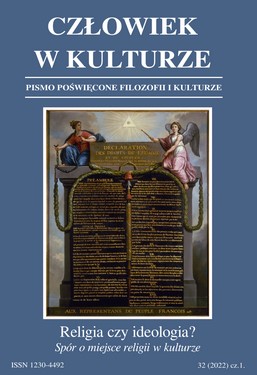Essentialist Vs. Consequentialist-Based Concept of Human Dignity
Essentialist Vs. Consequentialist-Based Concept of Human Dignity
Author(s): Stephen UgwuSubject(s): Human Rights and Humanitarian Law, Epistemology, Ethics / Practical Philosophy, Ontology
Published by: Fundacja »Lubelska Szkoła Filozofii Chrześcijańskiej«
Keywords: Human dignity; human person; rationality; freedom; personalistic norm;
Summary/Abstract: The ontological and epistemological presuppositions of scholars about the concept of human dignity is fundamentally based on the argument that human being possesses an objective and inherent value that is inalienable. The understanding demands as right from every human being respect to oneself, others, to human life and freedom in general. However, there have been instances of violation of this right in such acts like abortion, euthanasia, rape, terrorism, medical experiments on humans and modern forms of slavery. These acts violate the truth, goodness and beauty of acts that defines human person, so, calls for proper understanding of the bases of human dignity in the contemporary time. Some scholars ascribe this intrinsic quality of human nature only to human being who have objective moral value. This approach defines as humans those who have the capacity for such features like rationality, freedom and self-awareness. That is, the ability to live out these features, thus dignity as a consequence of these features. Some thinkers however understand dignity, as innate to every human being, given the ontic structure of human being. That is, on the essential features of human being which is universal to all human being in all stages of human life, hence, the essentialist base of human dignity. This article will consider these two positions and conclude with the contemporary challenges of the consequentialist debate.
Journal: Człowiek w Kulturze
- Issue Year: 2022
- Issue No: 32
- Page Range: 273-296
- Page Count: 24
- Language: English

